Growing up, parents try to persuade their children to take their vitamins so they can grow “big and strong.” Whether this is achieved through Flintstones gummies, bribery or hiding vitamins in food, parents have their own tricks for supporting their child’s health. Even as adults, many of us rely on multivitamins to stay healthy and feel our best. This push for family wellness begs the question: What about our furry family members? Should our pups be taking vitamins and supplements to support their wellness?
The short answer is most dogs can get all their nutrients from a well-balanced diet. Commercial dog food is designed to provide all the optimal nutritional benefits for a healthy pet. But that does not mean that vitamins and supplements may not be helpful. Regardless of your dog’s health status, it is important to consult your veterinarian before adding anything to their daily diet. Read on to learn the dos and don’ts of boosting your dog’s health.
What Kinds of Dog Vitamins and Supplements Exist?
The number of dog vitamin and supplement products available on the market can appear overwhelming at first. While dog multivitamins tend to be the most popular option, there are more specific products for certain dog breeds, health conditions, sizes and life stages. The key is to remember that although there are many types of vitamins available, they are not all created equal. When in doubt, prioritize supplements for your dog’s specific health needs over a general multivitamin.
Almost every type of vitamin or supplement comes in a variety of forms to make them appealing to dogs:
Chewable Bites: These soft chew vitamins are meant to resemble treats. They come in flavors like beef or peanut butter to appeal to your pup, and dogs often come to see them as a reward.
Liquids (such as oils): Designed to mix with your pet’s current food as a supplemental boost to their diet, liquid supplements can be flavored or tasteless.
Powders: Easy to mix with dry or wet food.
Gel: Can be mixed with food if liquid supplements become too messy.
What Vitamins Do Dogs Need for Good Health?
The following vitamins are usually present in a dog’s natural diet and are derived from produce, meat and other sources of protein.
| Vitamin | Source | Benefits |
|
Vitamin A
|
Carrots, eggs, fish oil, pumpkin, spinach, sweet potatoes, turnip greens |
-Fat-soluble nutrient -Supports vision, growth, fetal development, immune system and cell function |
|
Vitamin B |
Whole grains, beans, beef, pork, liver |
-Brain function -Energy levels -Cell metabolism -Preventing infection -Cell health |
|
Vitamin C |
Organ meats |
-Antioxidant |
|
Vitamin D |
Fatty fish, fish oil, egg yolks, beef, liver |
-Balancing minerals -Healthy bone growth |
|
Vitamin E
|
Wheat germ, whole grain, salmon, trout |
-Fat-soluble nutrient -Cell function -Fat metabolism |
|
Vitamin K
|
Leafy green vegetables, green beans, beef liver, chicken, pork |
-Fat-soluble nutrient -Essential in activating the proteins needed for blood to clot |
|
B Vitamins -Riboflavin -B12 -B6 -Pantothenic Acid -Folic Acid
|
Beef liver, eggs, mackerel, sardines, salmon, goat milk |
-Regulate energy & carbohydrate metabolism -Enzyme function -Glucose generation -Nervous system -Hormone regulation |
Sources for Table: Canine Journal, American Kennel Club
Do Dogs Need Nutrition Supplements?
Most commercial dog foods are formulated to provide a well-balanced diet that includes all the vitamins and nutrients your dog needs. As puppies grow into adult dogs, recipes adapt to include the vitamins and minerals required for each life stage. If your dog is eating a balanced diet approved by the AAFCO and is not exhibiting any health issues, a supplement is usually unnecessary unless recommended by a veterinarian.
There are a few situations in which dogs may require or benefit from nutritional supplements. Dogs that are fed a homemade diet (not “fortified” commercial food) may need supplement boosts with their meals. Veterinary nutritionist Susan Wynn asserts that adding supplements to homemade food is “absolutely critical, but it should be done to match the diet. You can’t just create a meal and give your dog a vitamin.” Your veterinarian will be able to determine if anything is lacking from a homemade diet and which diet supplements may be necessary.
Dogs that struggle with certain health issues may also find relief in diet supplements. There are dog vitamins formulated for a multitude of concerns such as gut health, coat quality, vision, joint relief, energy levels and more.
Dogs with cancer sometimes benefit from vitamins that can protect healthy cells and support their immune system during radiation. Supplements are very popular with owners of senior dogs and may even improve a dog’s quality of life. Dr. Wynn supports this, writing “Antioxidants such as vitamins C and E [can] reduce inflammation and help aging dogs with memory problems.”
Supplements are by no means medication and should not be treated as such. However, with veterinary approval, they may make a difference in a pet’s overall longevity and wellness.
Did you know….
All RAWZ meals for dogs are specially formulated with the ideal amount of vitamin and mineral supplements, along with nutrients that naturally occur in the ingredients. Our foods’ high meat content is intended to satisfy the true carnivore and promote overall health. The RAWZ team works with animal nutritionists to formulate foods using minimally processed ingredients, which helps to retain the integrity of the nutrients.
Potential Risks Associated with Dog Vitamins
Unfortunately, there can be risks to giving an animal an excess of vitamins and minerals. Believe it or not, it is possible to have too much of a good thing!
If a dog already eats a balanced diet and is given additional supplements, they may face health issues in the future. For example, too much calcium can cause skeletal problems in puppies of large breeds. According to the American Kennel Club, “Too much vitamin A can cause dehydration, joint pain, and even harm your dog’s blood vessels. On top of that, there are very few studies that have tested the long-term safety of dog vitamins.” The list of potentially risky vitamins is long, but a veterinarian will be able to recommend safe doses of supplements.
Ingredients in supplements may also interact with a sick dog’s medication, causing symptoms of their illness to worsen. “A lot of times people start adding supplements and herbs on top, thinking it cannot hurt,” says veterinarian Lori Teller. “But these can impact the absorption of medication that has been prescribed or cause an adverse reaction.”
Avoiding these risks is simple: always consult your veterinarian. Do not add any vitamins or supplements to your dog’s diet without their vet’s approval. If your vet does give the green light, be sure to monitor your dog closely for any new health issues or adverse reactions.
How to Choose Vitamins and Supplements for Your Dog
As a rule, choosing supplements for your dog should begin at the veterinarian. Once your vet has all the information they need about your dog’s current health, they can make an informed decision in the best interests of your pet.
If your vet decides that supplements may support your dog’s health, ask them for a list of approved and recommended brand names that they trust. Supplements for dogs are easily accessible, but there is little testing or regulation of even the most trusted products. You’ll need to ensure that a product is safe by doing your research before purchasing. Remember that supplements are not intended to cure an ailment or serve as a medication, and they may have little noticeable effect on your pup.
Follow these tips to find a reputable product for your dog:
- Look for a brand that has commissioned clinical studies linked on their website.
- Be wary of fake reviews and try to find reputable, confirmed websites. Use Fakespot to flag unverifiable information.
- Avoid products that claim to be incredible cure-alls or a replacement for medication.
- Do not give your dog supplements or vitamins that are meant for humans. The dosage level and ingredients may be harmful to your dog.
- Read product labels to ensure quality and safety. Lot numbers on the label indicate that the manufacturer performs quality control checks on their products.
How to Give Your Dog Supplements
When altering your pet’s diet, it is important to introduce new things slowly. Animal nutritionists recommend starting your dog with half the recommended dosage and working up to a full dose over the course of seven to ten days. That way, your pet can adapt to the dietary changes and any new health issues can be traced to the source. This may also prevent an adverse or allergic reaction from occurring.
Getting your dog to eat supplement-enhanced food may be challenging if your dog is picky or does not like the new taste. If using a liquid, gel or powdered supplement, mix it thoroughly into the food — this may help your dog forget it is there (or not even notice) because they are focused on the meal. Some pet parents find that rewarding their dog with treats after they eat a chewable vitamin works like a charm. What dog wouldn’t do anything for a treat?
|
DO |
DON’T |
|
Consult your vet before feeding your dog a supplement |
Give your dog a new supplement without vet consultation |
|
Introduce supplements slowly with the recommended dosage |
Give your dog more than the recommended dosage |
|
Stick to one supplement at a time, if possible |
Add supplements on top of nutritionally complete commercial dog food |
|
Watch for unusual side effects or symptoms |
Give your dog vitamins formulated for humans |
|
|
Give your dog multiple supplements without vet approval |
Recommended Vitamin Supplements for Dogs
Now that we’ve covered the dos and don’ts of dog supplements, we have compiled a list of some reputable brand names we can get behind. Most of these brands are National Animal Supplement Council (NASC) approved. NASC is a non-profit company that is committed to quality standards for pet supplements that are not regulated by the FDA.
Hopefully, this list can serve as a helpful starting point if you’re considering boosting your dog’s health and quality of life. Even though we stand behind these brands, always consult your veterinarian to see if these products are appropriate for your pet.
Zesty Paws (NASC approved): Zesty Paws offers a variety of supplement products to fit any dog’s needs. Their online store features oils and chewable bites in flavors your dog will love. Their multivitamin contains 20 vitamins, minerals and nutrients that support overall wellness and are suitable for any size dog.
Nordic Naturals Nordic Pet (NASC approved): Nordic Naturals’ transparent website features comprehensive quality control and testing info. Be sure that you are shopping in their pet collection — they also offer human supplements. They are most well-known for their Omega-3 Pet soft gels and oils for dogs. Omega-3 Pet supports heart health, coat health, the immune system and joint health.
Thorne Vet (NASC approved): Thorne Vet is best known for their BComplex Vet Vitamin B Support Soft Chews. This soft chew has a blend of B-Complex vitamins as well as folate, biotin and choline. Thorne Vet, which also makes supplements for humans, is one of the most trusted in the animal supplement industry.
FAQs
Q: Are supplements necessary for dogs?
A: In general, supplements are completely unnecessary for healthy dogs unless recommended by a veterinarian for a specific health issue or vitamin deficiency. If your dog eats a well-balanced diet of high-quality dog food, vitamins could do more harm than good.
Q: What are the best supplements for senior dogs?
A: As dogs age, their health needs change or become more complicated. Depending on which health issues a pet may have, their veterinarian may recommend more specific types of supplements instead of general multivitamins, such as support for arthritis, kidney health or vitamins for the coat and skin.
Q: What dosage of vitamins should I give my dog?
A: Giving a dog too much or too little of a supplement can negatively affect their health. Consult your veterinarian regarding the correct dosage for their breed, age and size. Read all labels for recommended dosages, as well as any warnings.
Q: What supplements are bad for dogs?
A: Any supplements can be harmful to dogs in large doses, especially if the ingredients interfere with a medication. Because of lack of testing, there are some supplements to be wary of. CBD and other oils can be toxic to dogs if dosed incorrectly. To learn more about the pros and cons of CBD for dogs, click here.






